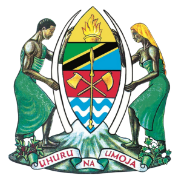HISTORICAL BACKGROUND
The Bank of Tanzania Academy (BOT-AC), as it was formerly known as the Bank of Tanzania Training Institute, is located in Mwanza at Capri Point along the Railway Road. The Academy was established in 1991 as one of the Bank of Tanzania operational entities with a mandate to provide short-term training programmes for the Bank of Tanzania. Following the liberalization of the banking sector in Tanzania from 1990 to 2000s, the Academy’s mandate was expanded to provide training programmes for banking institutions due to the Bank of Tanzania’s new supervisory role. For a decade-long period from 2000s to 2010s, the Academy experienced spontaneous growth to transcend national borders and thus became a regional institution, providing training programmes for regional central banks in the East African- Community (EAC) and the Southern African Development Community (SADC).
Despite providing short courses for the Bank of Tanzania, banks and financial institutions, and the regional central banks, the country’s financial institutions face numerous challenges including unethical practices and lack of professionalism. As a strategy to address these challenges, the Bank of Tanzania embarked on a rigorous transformation of the Academy to fill the existing gap in the financial sector. This required the Academy’s transformation from its traditional mandate of offering only short-term programs to the introduction of long-term competency-based programmes.
Due to the necessary transformation, the Bank of Tanzania Academy has been fully registered and accredited by the National Council for Technical and Vocational Education Training (NACTVET). In pursuit of the transformation objectives, the Academy commenced offering the Ordinary Diploma in Banking Practice and Supervision from the 2020-2021 academic year. Alongside the same transformation objectives, the Academy will commence offering Postgraduate Diploma in Banking Management in the 2022-2023 academic year. In addition to the long-term programmes, the Academy focuses on teaching specialised skills through a number of certification programmes such as Certified Currency Management Professionals and many others which are in the pipeline.
